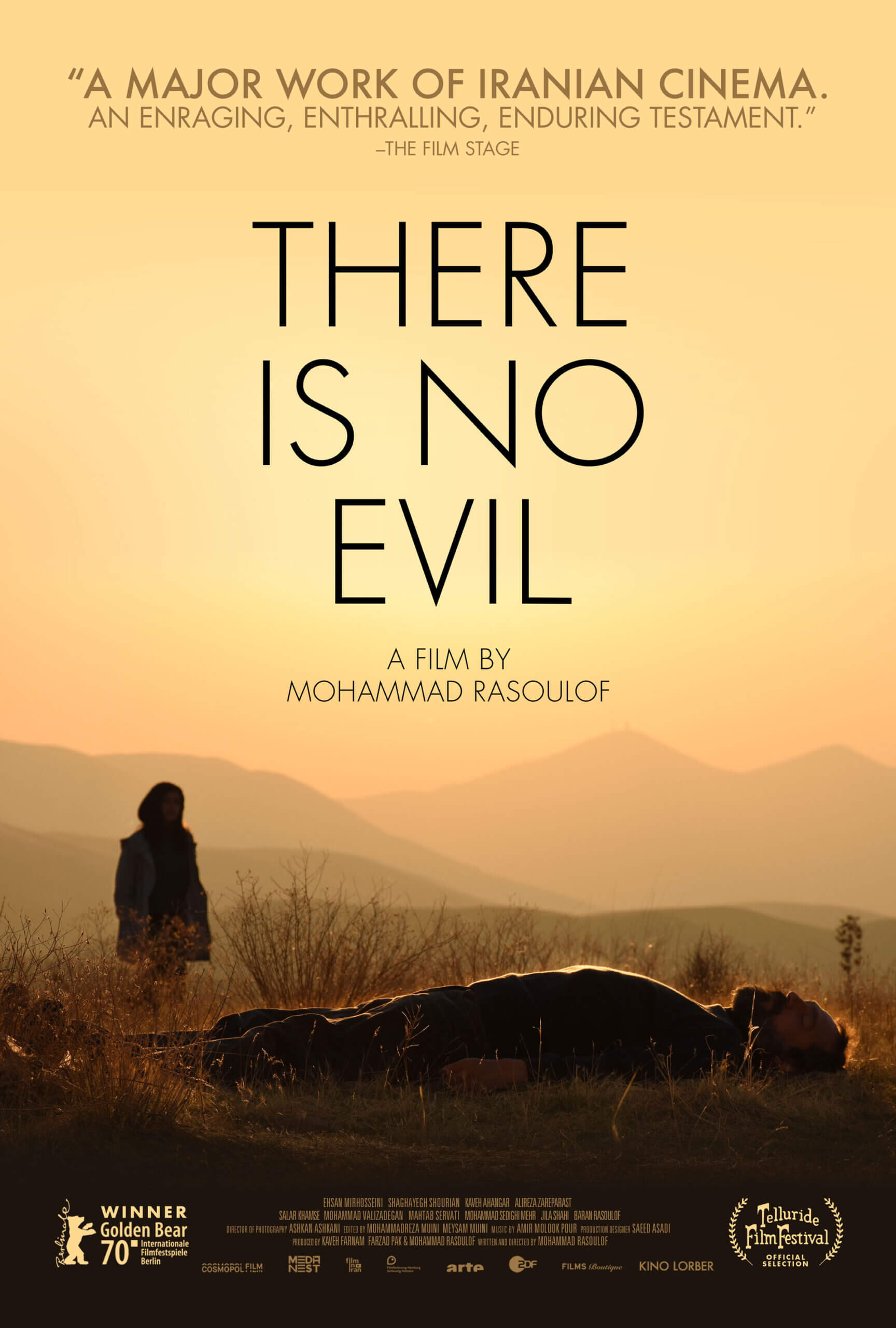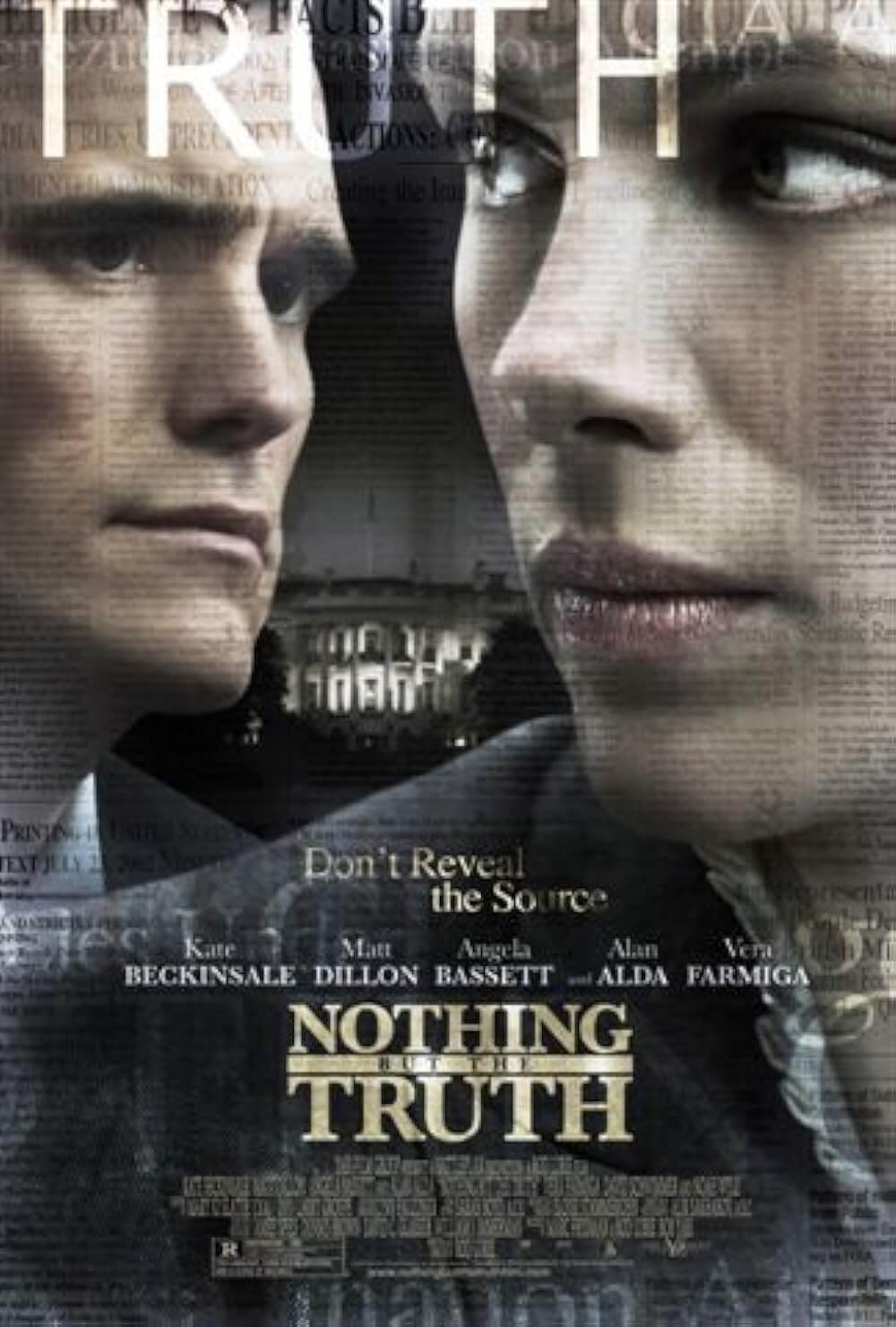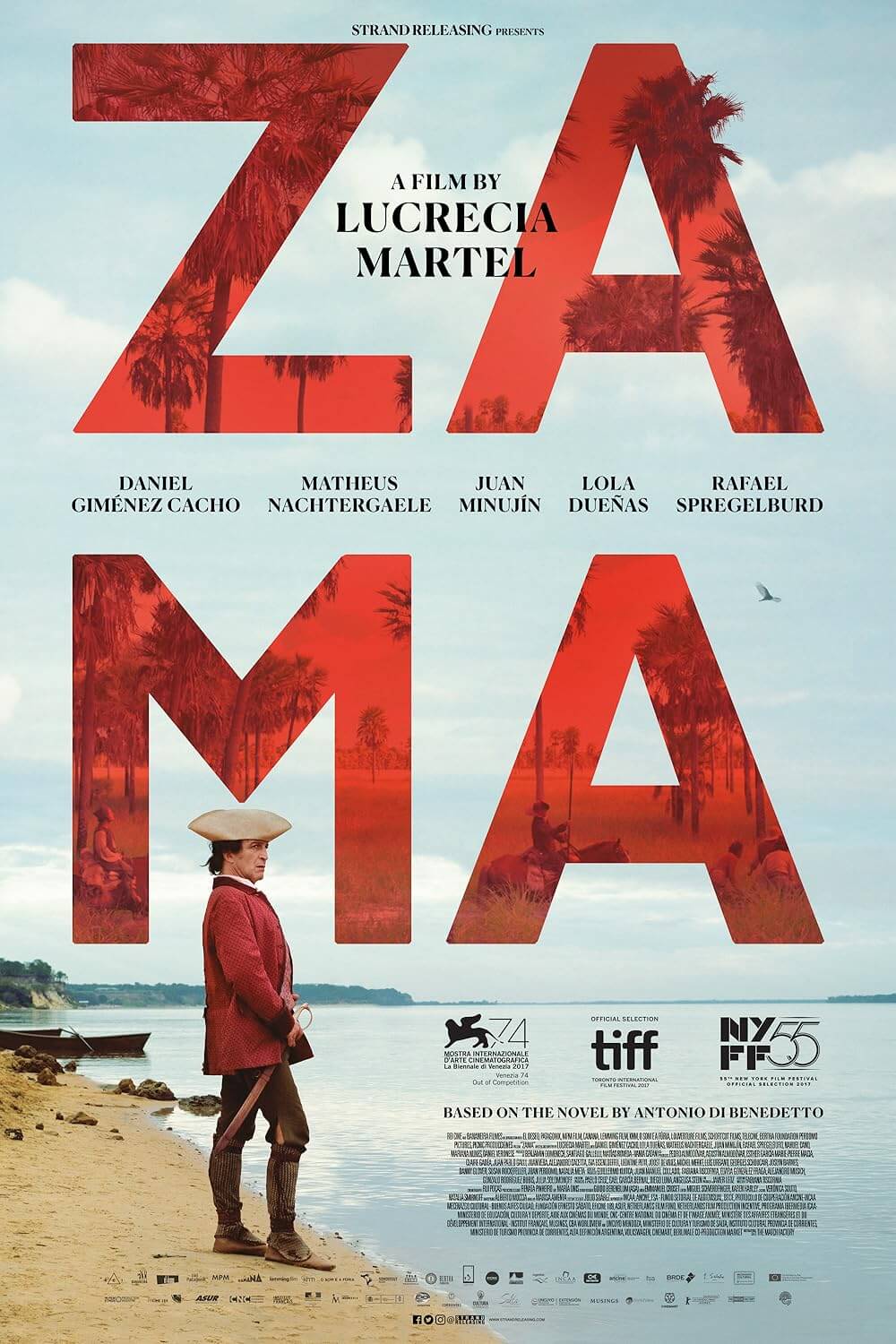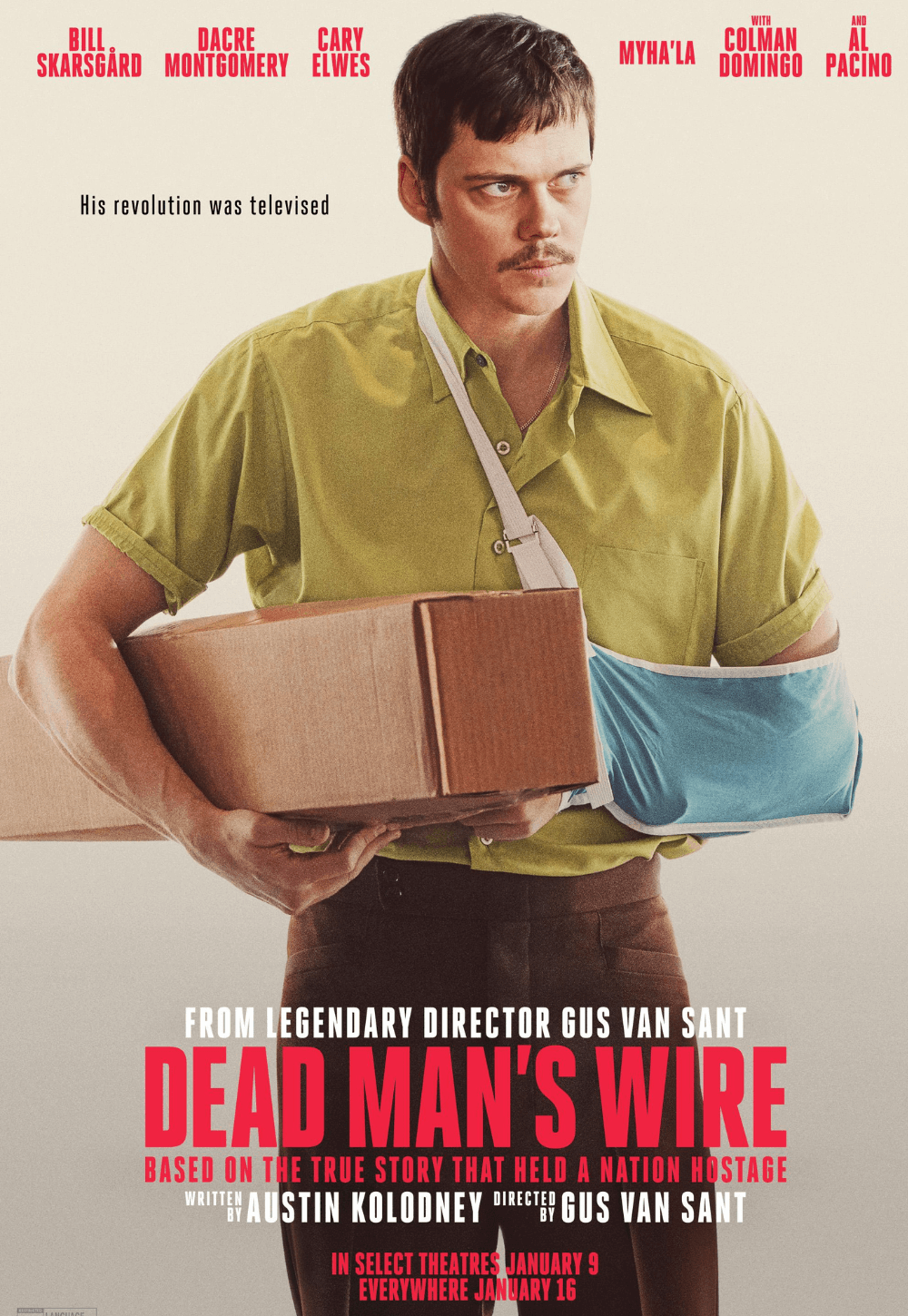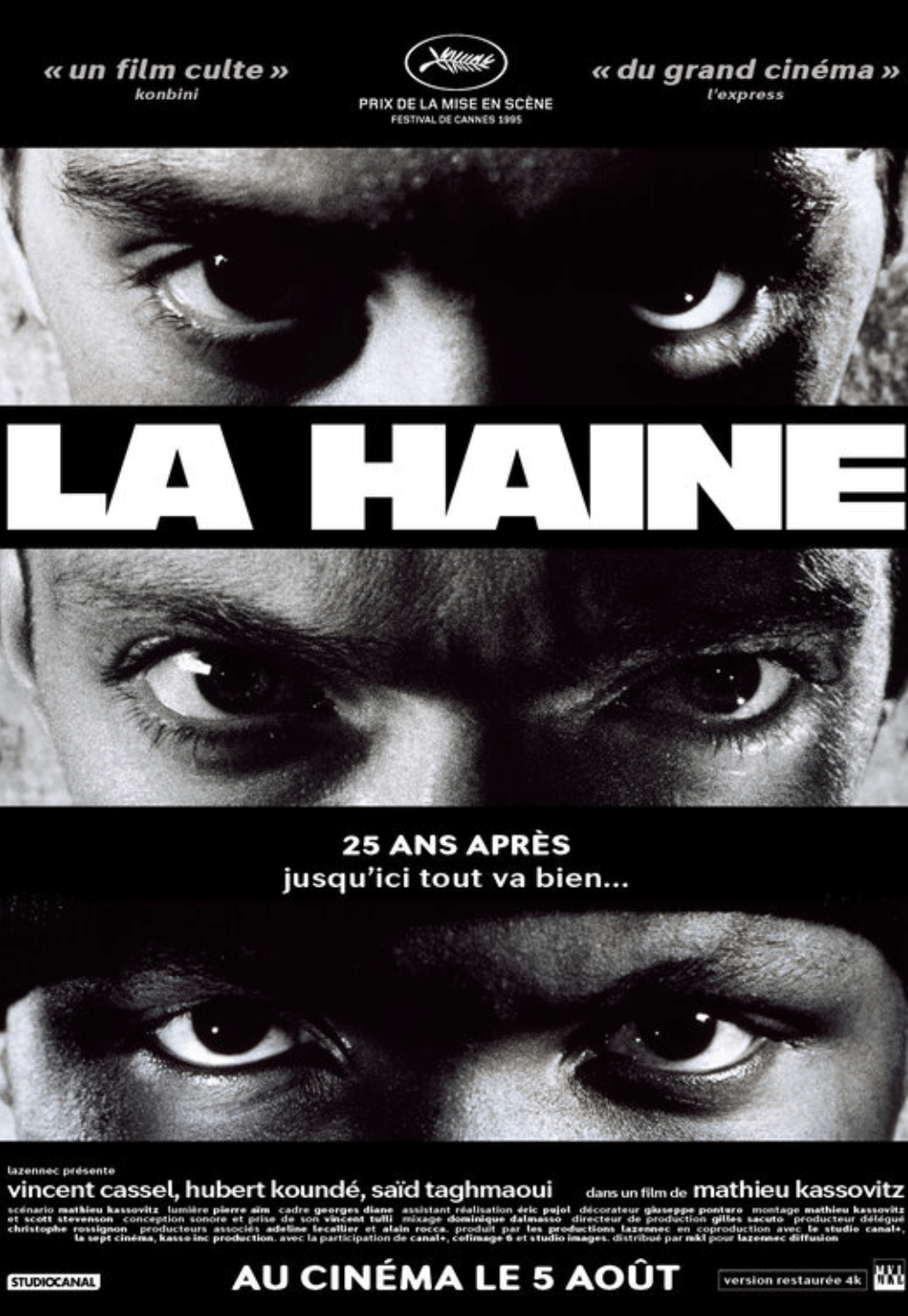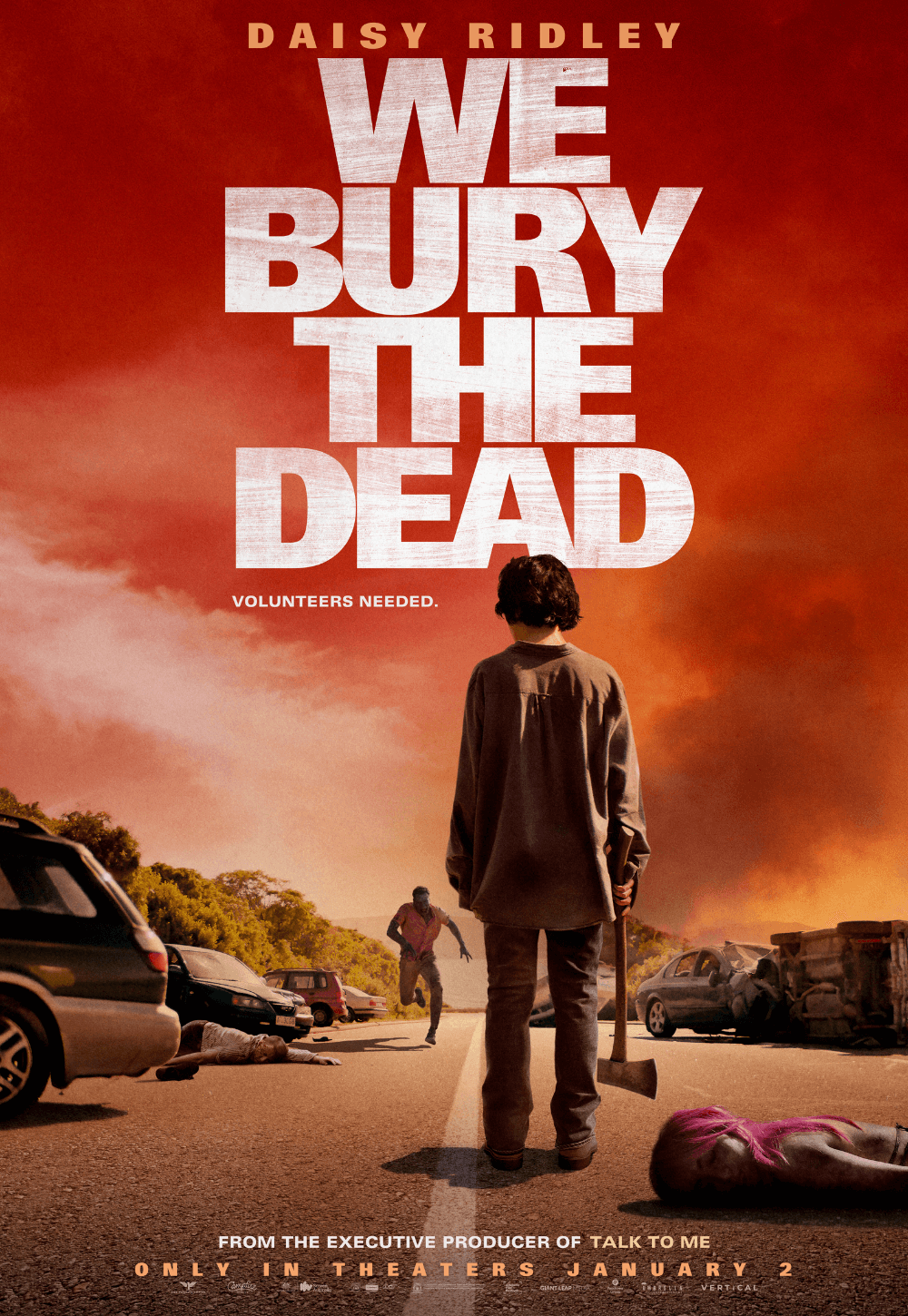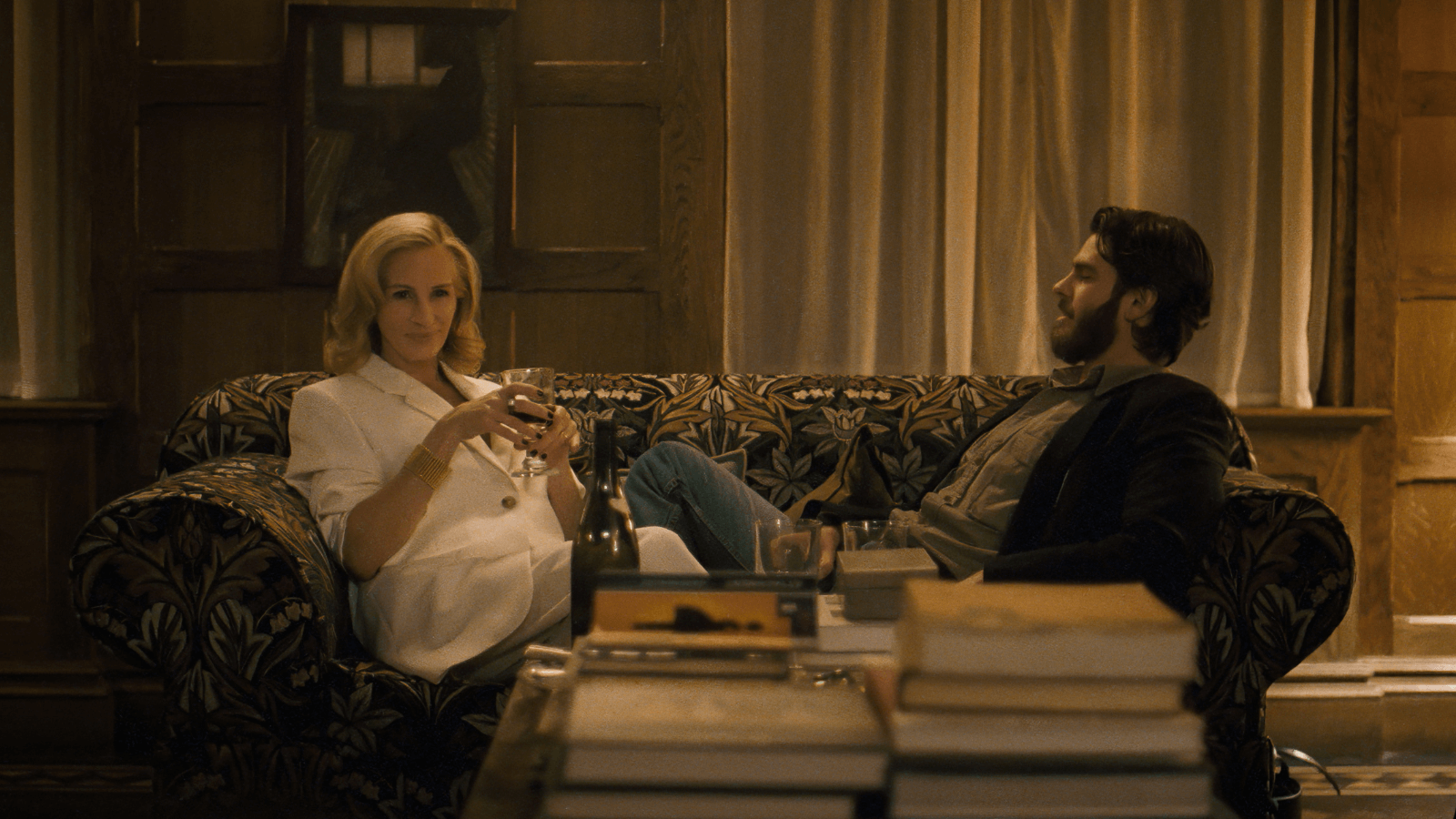
After the Hunt
By Brian Eggert |
(Note: This review was originally posted on October 5. It has been reposted to promote its theatrical expansion on October 17.)
Luca Guadagnino’s After the Hunt opens with a provocative detail. The credits—the white font against a black background, the jazzy music, the arrangement of the cast in alphabetical order—adopt the identical style used by Woody Allen in over 50 feature films. However you feel about Allen, the choice to replicate this look underscores a central theme in Guadagnino’s film. Allen, who was never officially charged and was cleared by several investigations into his alleged sexual abuse of a minor, was found guilty in the court of public opinion. The accusations laid against him meant he was all but tried and convicted. Unlike, say, Harvey Weinstein—who was actually found guilty of crimes in various courts—journalists and social media condemned Allen, rendering him persona non grata. And despite no legal form of justice, Allen’s cancellation means he remains largely unable to fund new projects or even have his body of work recognized without giving one pause. Some might consider this justified given his behavior, while others might view it as unfair. Whatever your take, it’s far from black and white. In the context of Guadagnino’s film, Allen’s story represents a similarly complex dynamic and potential for gray areas.
The question worth asking about After the Hunt is this: Does the world right now need a film that asks whether we should “believe women”? Certainly not. But just as Ari Aster’s Eddington conducted a pandemic post-mortem a couple of months back, the untimeliness of After the Hunt shouldn’t distract from its splendid performances, assured filmmaking, and rather controversial questions. Working from a script by Nora Garrett, Guadagnino delivers a film comparable to TÁR (2022), which is to say, it’s bound to piss people off, offend their sociopolitical worldviews, and incite fervent debate. Arguably, it does not take sides in the narrative’s he-said/she-said dispute, and its message remains ambiguous—at once a litmus test and a conversation prompt, perhaps even frustratingly so for viewers who prefer their movies to answer every question. Almost every character proved a challenge to like at some point, and yet I sympathized with (most of) them at other points. Thinking about it afterward, I found myself tied up in knots, frustrated, and angry, yet also more engaged by it than most other movies I’ve seen in 2025.
It’s no coincidence that much of After the Hunt revolves around the philosophy department at Yale University. What is philosophy but the search for meaning and the inevitable realization that no meaning can be found? There’s only the search—the hunt, which itself might lead to some measure of truth. The title alludes to that process while also evoking a witch hunt, which is not so much the search for answers as a pursuit of someone to blame. What’s more, the title also nods to the professional ambitions of its main characters. Alma (Julia Roberts) and Hank (Andrew Garfield) both teach at Yale, and despite their friendship and secret love affair in the past, they now compete with each other for a tenured position. At a dinner party hosted by Alma and her psychologist husband, Frederik (Michael Stuhlbarg), she and Hank discuss the “hunt” of their professional ambitions. What happens after they get what they want? Life goes on, that’s about all. They continue to teach, publish, and navigate the academic rat race. And isn’t that a little anticlimactic?
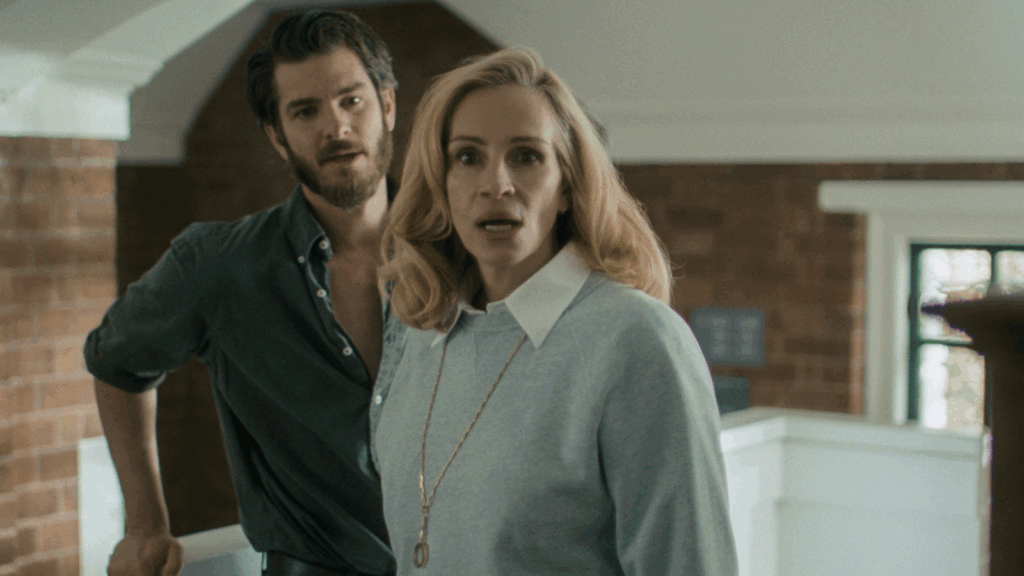
Also in attendance at the dinner party is PhD candidate Maggie (Ayo Edebiri), a mentee of Alma and Hank, who writes about “virtue ethics” and whose wealthy parents are major donors to Yale. While looking for toilet paper at the party, Maggie finds an envelope taped to a cupboard shelf. Inside, she finds some old photographs and an article in German that Alma stowed away. More on that later. The next day, Maggie shows up at Alma’s doorstep in the rain and explains that, after a drunken Hank walked her home, he sexually assaulted her. Alma responds with suspicion and questions, which is not what Maggie needs at that moment. Hank claims innocence, that Maggie fabricated the story because he discovered she had plagiarized her dissertation. Nevertheless, Yale fires Hank, and Maggie speaks out in the press. And as Garrett’s script unfolds, the material reveals itself not as a #MeToo thriller in the mode of Bombshell (2019) and She Said (2022), but rather as a portrait of how Alma’s involvement disrupts her orderly life and career.
So, what has happened here? It’s refreshing that After the Hunt never clarifies with any certainty and leaves the audience to decide. One can imagine a scenario in which Maggie’s unbelievably convenient discovery of the restroom envelope—containing an article about the 16-year-old Alma making up a story about a statutory rape—planted the idea for Maggie to make a false accusation. After all, who would question the daughter of one of Yale’s most prominent donors? Then again, perhaps Alma’s past distorts how she sees Maggie’s story. And then there’s Hank, who is flirty, touchy, and volatile, and he never quite convinces us of his innocence. Hank’s story fell apart for me after a later scene where he makes a pass at Alma, and she must repeatedly tell him to stop and must struggle with him until he does. Is that evidence of what happened with Maggie? No, but it doesn’t reinforce his claims. What’s apparent throughout is that these individuals are messy; none of them is beyond reproach, and each brings psychological baggage to the situation.
Guadagnino’s style on After the Hunt sets aside his usual sumptuousness and virtuosity, epitomized by last year’s Challengers and, to a lesser extent, Queer. Cinematographer Malik Hassan Sayeed shoots in dour and moody colors and light, with only a few sharp camera movements and edits that channel the director’s signature style. Guadagnino also replicates the direct camera technique often used by Jonathan Demme, in which characters interact by looking directly into the camera lens. Still, more expressive is the score by Trent Reznor and Atticus Ross, a nightmarish blend of strings and harsh piano notes that occasionally recalls the score in Eyes Wide Shut (1999). The music also employs a tick-tock effect that never quite works to ratchet the tension as intended. All of these flourishes feel restrained next to the performances, especially the terrific Roberts as Alma, whose emotional internalization fuels one of the star’s most complex and layered roles. I also loved watching Stuhlbarg’s Frederik gesticulate and cut through the pretense of every scene with humor and understanding.
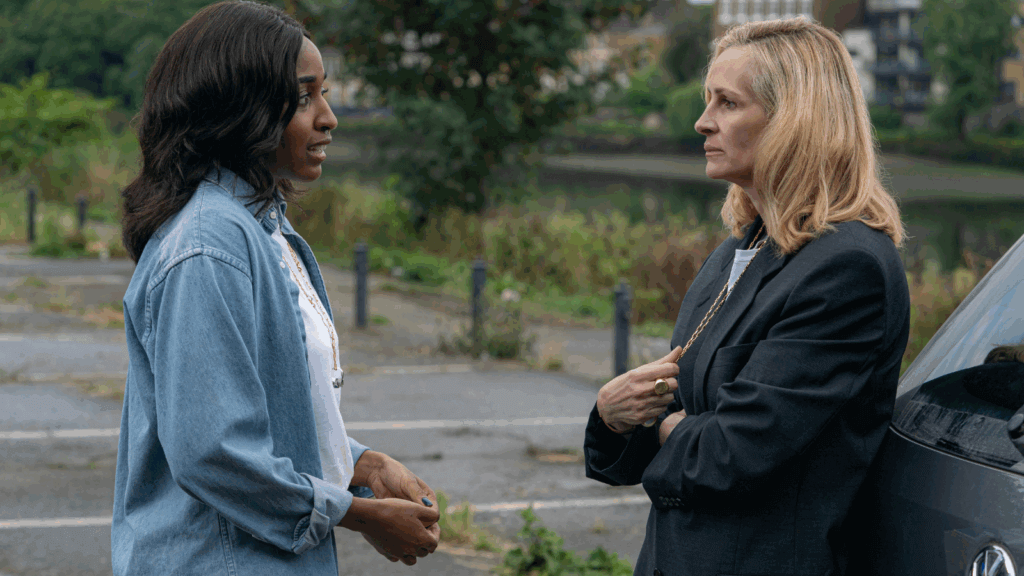
After the Hunt uses a potent sexual assault case to explore not only how cancel culture operates, but also how it shuts down uncomfortable discussions due to a preoccupation with absolute responses to triggering content and social justice issues. Note when Alma blows up at a student who confuses the symbolic Other with a literal sociopolitical Other, the former an intentionally ambiguous philosophical concept, the latter a condition of social power. This is further articulated when Yale’s Dean of Humanities tells Alma that the current culture has made universities prioritize “the business of optics, not substance.” The answer to what happened between Maggie and Hank becomes less significant than how Alma and Maggie approach the situation, with their shared experiences as women not enough to overcome their racial and generational differences, not to mention the distinctions between feminist waves. However, the last shot suggests that the dividing lines are rooted in class and privilege instead.
Guadagnino’s superbly acted drama explores our culture’s reluctance to engage in difficult, substantive conversations. In a heated confrontation with Maggie, Alma grows frustrated and tells her, “Not everything is supposed to make you comfortable.” That’s the thesis of After the Hunt, to the extent that the line appears on the poster. Indeed, this is a thorny film that asks uncomfortable questions about personal motivations. It’s a film that thrives on equivocations and ambiguities, and so it isn’t easy to pin down, which rewards examination of what happens and how characters behave. Although Guadagnino’s direction is more subdued than usual, it is no less thoughtfully executed; his minimized aesthetics allow the film’s four great performances to shine, particularly Roberts. No matter how people feel about its complex observations about generationalism and our obsession with optics, it will undoubtedly prompt conversation. It’s a film that has left me conflicted and debating with myself in the days after watching it, and maybe that’s what makes it special.
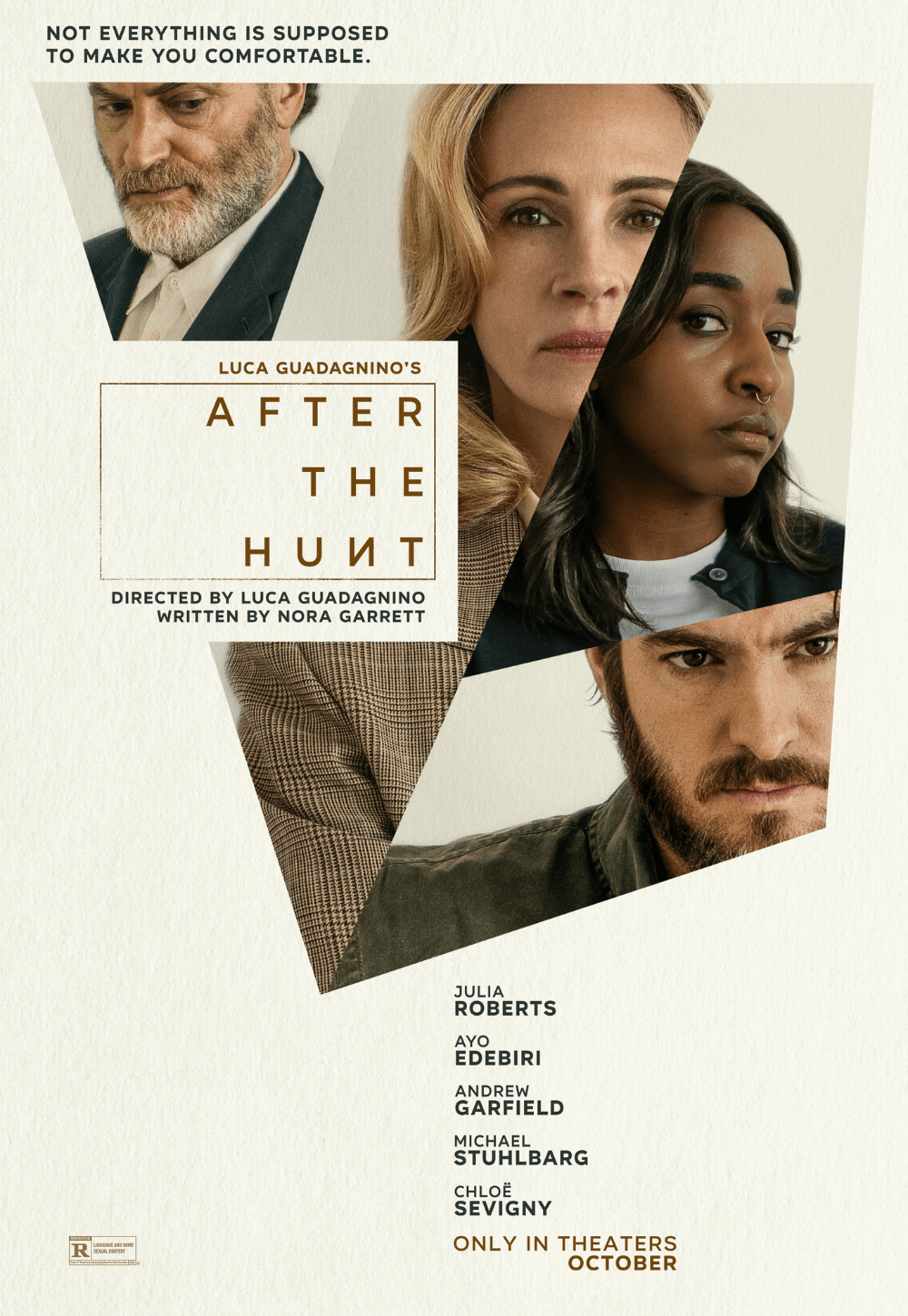
Thank You for Supporting Independent Film Criticism
If the work on DFR has added something meaningful to your love of movies, please consider supporting it.
Here are a few ways to show your support: make a one-time donation, join DFR’s Patreon for access to exclusive writing, or show your support in other ways.
Your contribution helps keep this site running independently. However you choose to support the site, please know that it’s appreciated.
Thank you for reading, and for making this work possible.
Brian Eggert | Critic, Founder
Deep Focus Review


